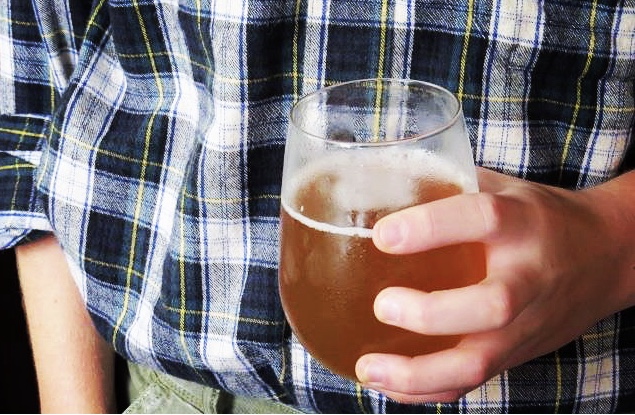By Fen Fenton, Communications Intern, Slow Food Denver

Crisp autumn weather and great seasonal pickings call for a pint of local beer. Luckily, Colorado has a plethora of breweries choose from, but not all of them look out for the community and environment. Although having a cold one in the mountains or downtown in Denver can take the edge off, we have the responsibility to be conscious consumers, especially with one of our largest cash crops. However, Colorado has a few gem breweries that are making it a point to put sustainability on the front burner of their business.
Both of Great Divide’s locations achieved becoming a Certifiably Green Business last year by the Denver Department of Public Health and Environment. The brewery was also awarded a $16,000 grant in 2017 to launch a Community Recycling Program in the RiNo neighborhood. Great Divide has an intensive recycling program, re-uses bottle rinse water, utilizes energy-saving motion sensor lights, and now has a 99% diversion rate of waste to the landfill. All of their progress and data in being a sustainable business is tracked and recorded by their “Green Team.” Great Divide also has a Taproom Giving Program, which helps raise money for local nonprofits.
New Belgium reduces GHG emissions with a large cluster of solar panels, generates electricity through processing their spent/wastewater, LEED certified. They co-found the glass recycling subcommittee to make recycling glass practical, and they are a part of BICEP (Business for Innovative Climate and Energy Policy), helping to look out for the environment and vouching for policies that directly impact climate change. They also support Conservation Colorado: an organization that wants to conserve Colorado’s environment. Great Divide has made it a point to work towards reducing and fine-tuning the amount of packaging they use on their beers, in order to become more sustainable. Check out their website; they have a lot of tips and information on how to be a conscious consumer and how New Belgium looks out for their impact on the environment.
Odell has worked over the past few years to reduce the water usage on an average gallon of beer (the national average is 7 gallons of water for 1 gallon of beer; they use 4). In 2012, the company revamped their vacuum pumping system so that the water in their system is used 3 times in the brewing process before it is discarded, which saved the company 2.5 million gallons of water in 2012. They have 11,000 square feet of solar panels and use wind power as well, which requires them to use just 5% total power. Try their IPA or one of their seasonals.
Good River Brewing in Denver created 2% For Rivers. This nonprofit redirects 2% of a business’s gross profits to various organizations that help conserve and clean up our river systems.
Denver Beer Co has a bit of a different way of being sustainable. They are one of the only breweries around that is completely dedicated to making Colorado beer, from start to finish. 95% of the malt they use is sourced from the state of Colorado, while 100% of the water used is sourced from the Platte River. Denver Beer Co also. Taste their graham cracker porter; its toasted malt and browned butter flavors are a perfect treat around this time of year.
Left Hand Brewing has worked hard to minimize their water usage and conserve energy by using the efficient Baukon kettle. The business is conscious of its largest waste stream: spent grain, and redirects that waste to local farmers, where it can be repurposed as cattle feed. Left Hand pulls off four events for the Longmont community every year, and often donates to local organizations and projects. Their Sawtoothe Ale and Milk Stout are crowd favorites.
Our Mutual Friend in Denver is committed to making 100% Colorado grown beer. They’ve grown accustomed to using the local land around them to gather local ingredients, and currently source most of their grains from Colorado. Our Mutual Friend also tries their best to incorporate local hops and specialty ingredients from our state as well. Try their Bier de Garde amber ale!

0 Comments